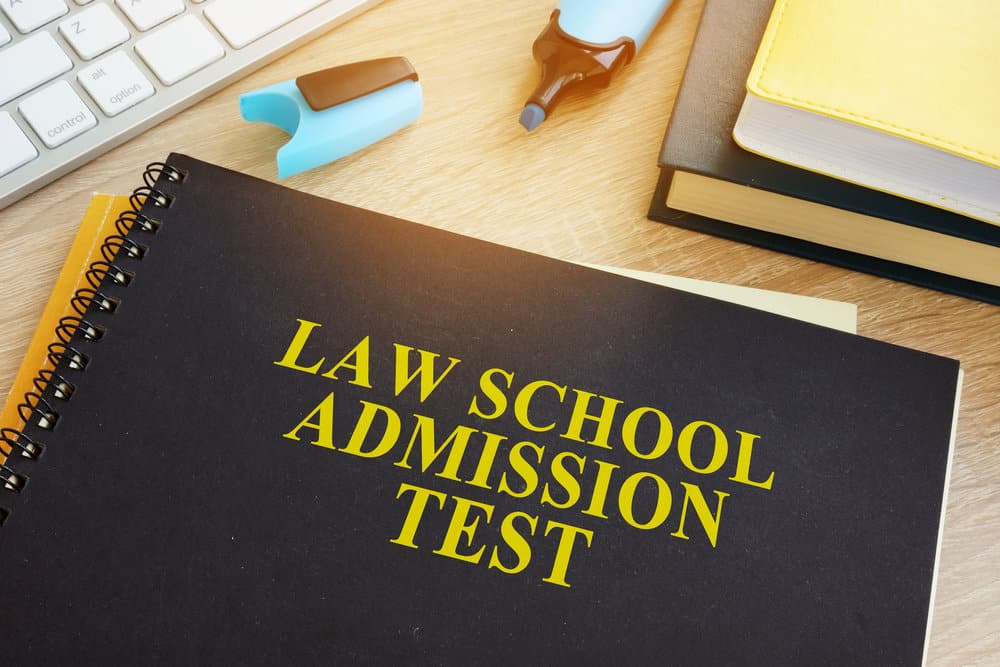Ready to embark on a career in law? Don’t go in blind – get the inside scoop on what it takes to become a lawyer. Our guide covers every aspect, from navigating law school applications to exploring various legal specialties. Learn about education requirements, licensing exams, gaining professional experience, applying for admission, and continuing education, all essential steps for achieving your dream of practicing law. It won’t be easy, but the journey is well worth it for those passionate about justice.
So let’s embark on this journey together as we explore the path towards achieving your dream of practicing law in detail.
Understanding the Process
Before you can practice law, you will need to complete specific steps and requirements. This includes graduating from an accredited law school, passing the bar exam in your state of residence, receiving a license from your state’s board of attorney examiners, and continuing your legal education as required by your jurisdiction. Additional requirements may be met depending on which type of lawyer you wish to become and where you live.
This section will walk you through the steps of becoming a lawyer and provide insights into what it takes to succeed in this profession.
A. The Journey from Law School to Practice
Becoming a lawyer typically begins with obtaining an undergraduate degree, then attending law school and earning your Juris Doctor (JD) degree. After completing your education, you must pass licensing exams and gain admission to practice law in your state before starting your legal career.
B. Time Commitment
Becoming a lawyer requires a significant time commitment and dedication toward studies and professional development throughout one’s career. On average, it takes about seven years of full-time study after high school: four years for an undergraduate degree and three years at law school.
i) Undergraduate Degree:
- Duration: Typically four years
- Type: Bachelor’s Degree (preferably related fields like Political Science or Criminal Justice)
- Purpose: Foundation knowledge required for pursuing higher studies in Law
ii) Law School:
- Duration: Typically 3 years
- Type: Juris Doctor (JD) Degree
- Purpose: Comprehensive understanding of laws & legal practices; preparation for bar exam
- Some students may choose accelerated programs or part-time options, which can alter these timelines.
C. Challenges and Rewards
A legal career’s intellectual and personal growth and service opportunities make it both challenging and rewarding. Understanding these challenges and rewards will help you determine if pursuing a career in law is right for you.
This article will delve deeper into each step involved in becoming a lawyer – from education requirements to licensing exams and professional experience – providing valuable insights to guide your decision-making process.
Gaining admittance to the legal profession can be a long and intricate journey, but awareness of it is essential for reaching your ambitions. With that knowledge, you are now ready to explore the education requirements for becoming a lawyer.
Key Takeaway:
Becoming a lawyer requires dedication and significant time commitment, typically taking seven years of full-time study after high school. Obtaining a college diploma, getting a JD from law school, passing the licensure tests, and becoming certified to practice in one’s state are all essential steps for those seeking to become lawyers. While challenging, the rewards include intellectual stimulation and opportunities for personal growth through legal representation.
Education Requirements

Becoming a lawyer requires dedication and commitment to complete the necessary educational requirements. To become a lawyer, one must first obtain an undergraduate degree, then attend law school and gain their JD.
A. Undergraduate Degree
To start legal education, an accredited college or university must be attended to obtain an undergraduate degree. While no specific major is required for aspiring lawyers, choosing a field that will help develop critical thinking, analytical skills, and practical communication abilities is essential. Some popular majors among pre-law students include political science, history, philosophy, English literature, and business administration.
B. Law School Admission Test (LSAT)

Before applying to law schools, the Law School Admission Test (LSAT) must be taken as part of the admission process. This standardized test measures reading comprehension skills and logical reasoning abilities – crucial components for success in law school.
- Preparation: Preparing well for the LSAT is essential since your score determines which law schools you may be admitted into.
- Taking multiple tests: Many students take the LSAT more than once if their initial scores do not accurately reflect their potential or wish to improve their chances of getting into top-tier institutions.
C. Attending Law School
A JD degree typically takes three years of full-time study at an American Bar Association (ABA)-approved law school. The curriculum is designed to provide students with a comprehensive understanding of the legal system, including constitutional law, civil procedure, contracts, torts, property law, and criminal law. In addition to the core courses, students can select electives matching their interests or career ambitions.
D. Law Review and Moot Court
While in law school, it’s highly recommended for aspiring lawyers to participate in extracurricular activities such as Law Review or Moot Court competitions. These experiences enhance your resume and help develop essential skills like research capabilities and oral advocacy techniques.
In summary,
- Gain a bachelor’s degree in an applicable area of study.
- Prepare for and take the LSAT exam.
- Attend an ABA-approved law school to earn your JD degree.
- Participate in extracurricular activities such as Law Review or Moot Court competitions while attending law school.>
To become a lawyer, one must fulfill the educational requirements of an accredited law school. Knowing what tests must be passed is key to attaining legal status.
Key Takeaway:
To be a lawyer, one must first acquire an undergraduate degree and pass the LSAT, then pursue a JD at an ABA-approved law school while participating in extracurriculars such as Law Review or Moot Court. Preparing well for the LSAT is important since your score significantly determines which law schools you may be admitted into.
3. Licensing Exams
To become a practicing lawyer, passing the required licensing exams is crucial. Exams are formulated to evaluate your legal comprehension and verify that you possess the needed capabilities for working as a lawyer proficiently.
A. The Bar Exam
The bar exam is the most well-known licensing exam for lawyers in the United States. This rigorous examination varies by state but typically consists of two parts: a multiple-choice section known as the Multistate Bar Examination (MBE) and an essay portion that tests your ability to analyze legal issues and apply relevant laws.
- MBE: The MBE contains 200 questions covering constitutional law, contracts, criminal law, evidence, real property, and torts.
- Essay Portion: In this part of the exam, you’ll be given several hypothetical legal scenarios where you must identify relevant issues and provide well-reasoned arguments based on applicable laws.
B. State-Specific Examinations
In addition to the bar exam, some states require aspiring lawyers to pass additional examinations specific to their jurisdiction’s laws before practicing within that state. For example:
- New York State Bar Examination (NYSBE)
- California Bar Examination (CBX)
C. Preparing for Licensing Exams
Preparing for these licensing exams can be daunting, but numerous resources are available to help you succeed. Many law schools offer bar preparation courses and materials as part of their curriculum. Additionally, several companies specialize in providing bar exam prep courses that include practice tests, study guides, and personalized coaching.
Preparing for your licensing exams thoroughly is essential for passing them and building the foundation of knowledge necessary to become an effective lawyer.
Completing licensing exams is crucial in becoming a lawyer, and having professional experience will be equally important.
Professional Experience
Gaining professional experience is essential for lawyers to cultivate the capabilities and understanding needed to excel in their field, which can be achieved through internships and clerkships. Internships and clerkships are two common ways to gain this valuable experience.
Internships
Internships provide law students with hands-on legal experience while still in school. These opportunities allow students to work alongside experienced attorneys, learn about different areas of law, and build a network within the legal community. Some internships are without payment or provide only a small amount of remuneration; yet, depending on the aptitude and conduct of the pupil during their internship, some organizations could potentially offer salaried positions.
- Benefits: Develop practical skills, gain exposure to various practice areas, and establish connections within the industry.
- Tips: Research potential employers thoroughly before applying for an internship; tailor your application materials (resume/CV/cover letter) specifically for each opportunity you pursue; be proactive in seeking additional responsibilities during your internship.
Clerkships
A clerkship, typically completed after graduating from law school but before taking licensing exams, involves working directly under a judge at either state or federal-level courts. This role provides invaluable insight into how judges make decisions and offers a unique perspective on courtroom proceedings that can significantly benefit future litigators or those interested in pursuing judicial appointments later.
- Benefits: Gain direct access to judicial decision-making processes, hone legal research and writing skills, and build relationships with judges and other court personnel.
- Tips: Apply for clerkships early in your law school career; consider applying to both state and federal courts as well as specialized courts (e.g., bankruptcy or tax); network with alumni who have completed clerkships to gain insight into the application process and what it’s like working in a judge’s chambers.
In addition to internships and clerkships, aspiring lawyers can participate in moot court competitions, volunteer at legal aid clinics, or join student organizations focused on specific areas of law. These experiences help develop essential lawyering skills and demonstrate commitment to the profession – an important factor when seeking employment after graduation.
Gaining relevant expertise is necessary for attaining the title of lawyer, and to move forward in this process, one needs to apply. Applying for admission can be an intimidating prospect, but it’s necessary to get on your way toward achieving your goal of becoming a lawyer.
Key Takeaway:
Aspiring lawyers can gain professional experience through internships and clerkships. Internships provide hands-on legal experience, while clerkships offer insight into judicial decision-making processes. Participating in moot court competitions, volunteering at legal aid clinics, or joining student organizations also helps develop essential lawyering skills and demonstrate commitment to the profession.
Applying for Admission
If you are thinking about initiating a claim for compensation and wondering how long it takes to become an attorney, comprehending the process of applying for admission is essential. Once aspiring lawyers have completed their education requirements and passed the necessary licensing exams, they can submit their application to the state Bar Association for admission into practice.
State Bar Associations
Each state has its own Bar Association, which regulates the legal profession within that jurisdiction. The application process typically involves submitting proof of educational qualifications, passing scores on licensing exams such as the bar exam or Multistate Professional Responsibility Examination (MPRE), background checks, and character references.
Moral Character Application
In addition to meeting educational and examination requirements, applicants must demonstrate good moral character. This often includes completing a moral character application, where candidates disclose any past criminal convictions or disciplinary actions taken against them by professional organizations. Non-fulfillment of these conditions may lead to refusal of entry.
Fees & Deadlines
Fees associated with the admission process may differ by jurisdiction but commonly include expenses related to application processing, fingerprinting (if necessary), and other administrative costs. Being aware of deadlines when applying is essential since missing one could significantly delay your ability to begin practicing law after graduation.
- Application Fees: These fees cover processing costs for reviewing your application materials.
- Fingerprinting Services: Some states require fingerprint-based background checks as part of the admission process.
- Deadlines: Be sure to submit your application materials by the required deadlines, as missing one could delay your ability to practice law.
In conclusion, applying for admission is crucial to becoming a lawyer. By understanding the requirements and processes involved with state Bar Associations, moral character applications, fees, and deadlines, you can better gauge how long it takes to become a lawyer when considering pursuing damages through legal action.
Obtaining admission to law school requires extensive investigation, commitment, and dedication; however, it can be feasible with the right resources and assistance. Having the correct aid and assistance can make it a feasible aim. Continuing education is also essential as laws are constantly changing, thus requiring lawyers to stay up-to-date on new developments in their field of practice.
Key Takeaway:
To become a lawyer, one must apply for admission to practice law in their state. This involves submitting proof of educational qualifications, passing licensing exams such as the bar exam or MPRE, completing a moral character application and paying associated fees on time. Each state has its own Bar Association that regulates the legal profession within that jurisdiction.
Continuing Education

To remain competitive in legal, lawyers must stay abreast of developments and trends through continuing education. As a victim considering filing a lawsuit for damages, you want to ensure that your lawyer has the most current knowledge and expertise in their field. This section will discuss why continuing education is essential for lawyers and some resources available to help them maintain their professional competence.
A. Importance of Continuing Education
In an ever-evolving legal landscape, staying informed about new laws, regulations, court decisions, and emerging trends is vital for effectively representing clients. Continuing Legal Education (CLE) courses are designed specifically for lawyers to enhance their skills and knowledge throughout their careers.
- Competence: Regularly participating in CLE programs ensures that attorneys remain competent in their practice areas by learning about recent developments or refreshing foundational concepts.
- Ethics: Many states require lawyers to complete ethics-focused CLE courses periodically to understand ethical obligations better when representing clients.
- Career Advancement: Attending specialized CLE courses can help attorneys develop niche expertise or transition into new practice areas over time.
B. State Requirements & Resources
Different states have varying requirements regarding mandatory continuing legal education (MCLE) credits that practicing attorneys must earn within specific timeframes, usually every one-to-three years, to maintain active bar membership status. To learn more about MCLE rules applicable in your state, visit the American Bar Association’s comprehensive guide on state MCLE requirements.
There are numerous resources available for lawyers to access CLE courses, including:
- Lawline: Offers online CLE courses covering various practice areas and state-specific requirements.
- Practising Law Institute (PLI): Provides in-person and on-demand programs designed by experienced attorneys and subject matter experts.
- Local Bar Associations: Many local bar associations offer live seminars or webinars that can be used to fulfill CLE credit requirements. Check with your specific association for more information.
In summary, attorneys must stay abreast of new legal developments and uphold their ethics through ongoing education to remain competitive. As someone considering filing a lawsuit for damages, it’s essential to find an attorney who values ongoing learning and professional growth so you can trust their expertise when seeking justice in your case.
Lawyers must prioritize continuing education to stay abreast of the evolving legal landscape. Given the importance of staying abreast with current legal developments, let us look at some career paths available to lawyers.
Key Takeaway:
Legal training is essential for attorneys to remain abreast of alterations in the law and jurisprudence. Attending specialized CLE courses can help attorneys develop niche expertise or transition into new practice areas over time, which is important for effectively representing clients. Different states have varying requirements regarding mandatory continuing legal education (MCLE) credits that practicing attorneys must earn within specific timeframes.
Career Opportunities

For those seeking to pursue a career in law, it is essential to investigate the various available opportunities. The legal field offers a diverse range of options that cater to different interests and skill sets. In this section, we’ll discuss some popular career paths for lawyers and provide resources for further exploration.
A. Private Practice
Many lawyers work in private practice, either as solo practitioners or as part of a law firm. Attorneys pursuing this path can specialize in various legal fields, including personal injury, family law, and criminal defense.
B. Corporate Law
Corporate lawyers often work for large companies or corporations where they handle legal matters related to business operations like contract negotiation and mergers & acquisitions, among other issues. Harvard Law School Forum on Corporate Governance provides valuable insights into corporate lawyers’ role within their organizations.
C. Government Service
Attorneys can also pursue careers with local, state or federal government agencies such as district attorney offices, the U.S. Department of Justice, and other regulatory bodies representing public interest cases.
D: Public Interest Law
In addition to working with government agencies,public interest law is another option for lawyers who want to make a difference in society. Lawyers who strive to impact society can take up positions with non-profit organizations, advocating for the rights of those in disadvantaged communities and campaigning for social equity.
E: Academia and Legal Education
For those passionate about teaching and research, pursuing a career in legal education can be an excellent choice. Law professors teach at universities or law schools while researching various legal topics.
F: Alternative Legal Careers
Beyond traditional roles as practicing attorneys, many alternative legal careers leverage your skills and law knowledge. Some examples include working as mediators, compliance officers, and legal consultants, among others options available after obtaining your license.
In conclusion, the legal field provides many chances to discover an occupation that fits your objectives and inclinations. As you continue exploring how long it takes to become a lawyer and what steps are involved, consider these diverse career paths when considering if this profession is right for you.
Key Takeaway:
Lawyers have many job possibilities, from private practice to corporate law, government work, public-interest law, and teaching. Beyond traditional roles as practicing attorneys, alternative legal careers, such as mediators or compliance officers, are available to those passionate about the field. It is essential to investigate the various paths available when contemplating if a career in law is suitable for you.
Frequently Asked Questions
What is the fastest time to become a lawyer?
The quickest path to becoming a lawyer typically takes around seven years, including four years for an undergraduate degree and three years of law school. However, some accelerated programs may shorten this timeframe by combining undergraduate and law studies.
Is it easy or hard to be a lawyer?
Becoming a lawyer can be challenging due to rigorous academic requirements, competitive licensing exams like the Multistate Bar Examination, and demanding professional expectations. This field requires dedication, critical thinking skills, and a strong work ethic.
How long is law school in Michigan?
Law school in Michigan generally takes three years to complete full-time. Some institutions, like University of Michigan Law School, offer part-time programs that take longer but allow students greater flexibility.
How many years does it take to become a lawyer in Texas?
In Texas, aspiring lawyers need at least seven years of education: a four-year bachelor’s degree and a three-year Juris Doctor (JD) program from an accredited law school. After completing their JD, candidates must pass the Texas Bar Exam.
What is the average salary of a lawyer?
The median annual wage for lawyers in 2019 was $122,960. However, salaries can vary widely depending on experience and specialization. Lawyers who specialize in specific fields, such as corporate law, have the potential to earn significantly higher salaries. Additionally, lawyers with more years of experience tend to command higher salaries. Salaries vary significantly based on location, firm size, and industry. For instance, lawyers in metropolitan areas with larger legal markets earn higher than average salaries.
Are there job opportunities for lawyers?
Yes, lawyers have many opportunities in various industries, such as corporate law, criminal law, family law, etc. Additionally, lawyers may be able to work at private practices or government agencies, depending on their desired career path. The demand for lawyers is expected to increase over time due to the growth of the legal services industry and other factors. Additionally, many organizations offer specialty certifications which can open new doors and provide additional job opportunities for experienced attorneys. With the right education, experience, and qualifications, lawyers have many opportunities in the market.
How long does it take to become a lawyer?
Becoming a lawyer typically takes at least seven years of education and training. This includes four years of undergraduate study and three years of law school. After completing the necessary educational requirements, candidates must pass their state’s bar exam before practicing law. Depending on the type of program chosen and other factors such as work or life experience, this timeframe may be shortened or extended. Additionally, some states offer alternative pathways to becoming a lawyer that reduces the time needed to qualify for legal practice. Becoming a lawyer is an extensive process that requires dedication and hard work, but it can be a rewarding and successful career.



